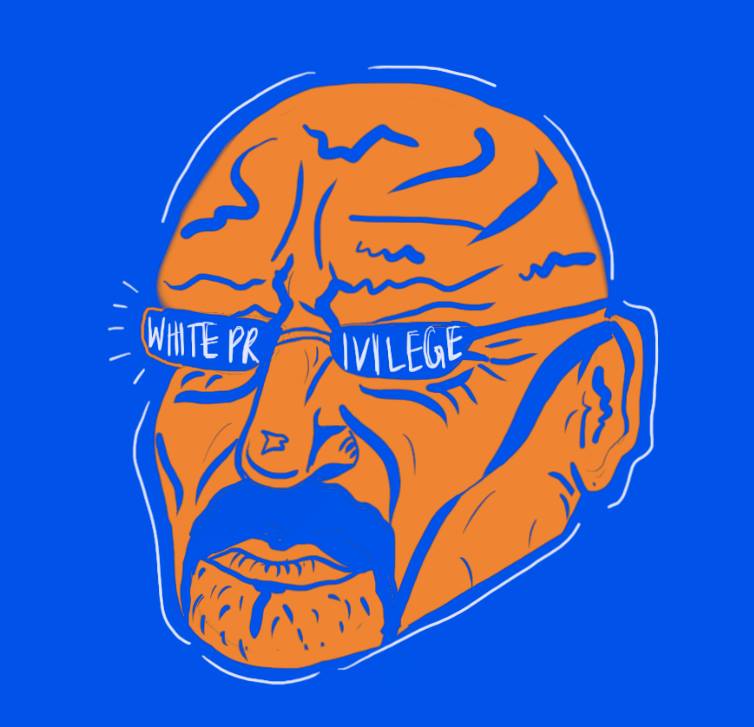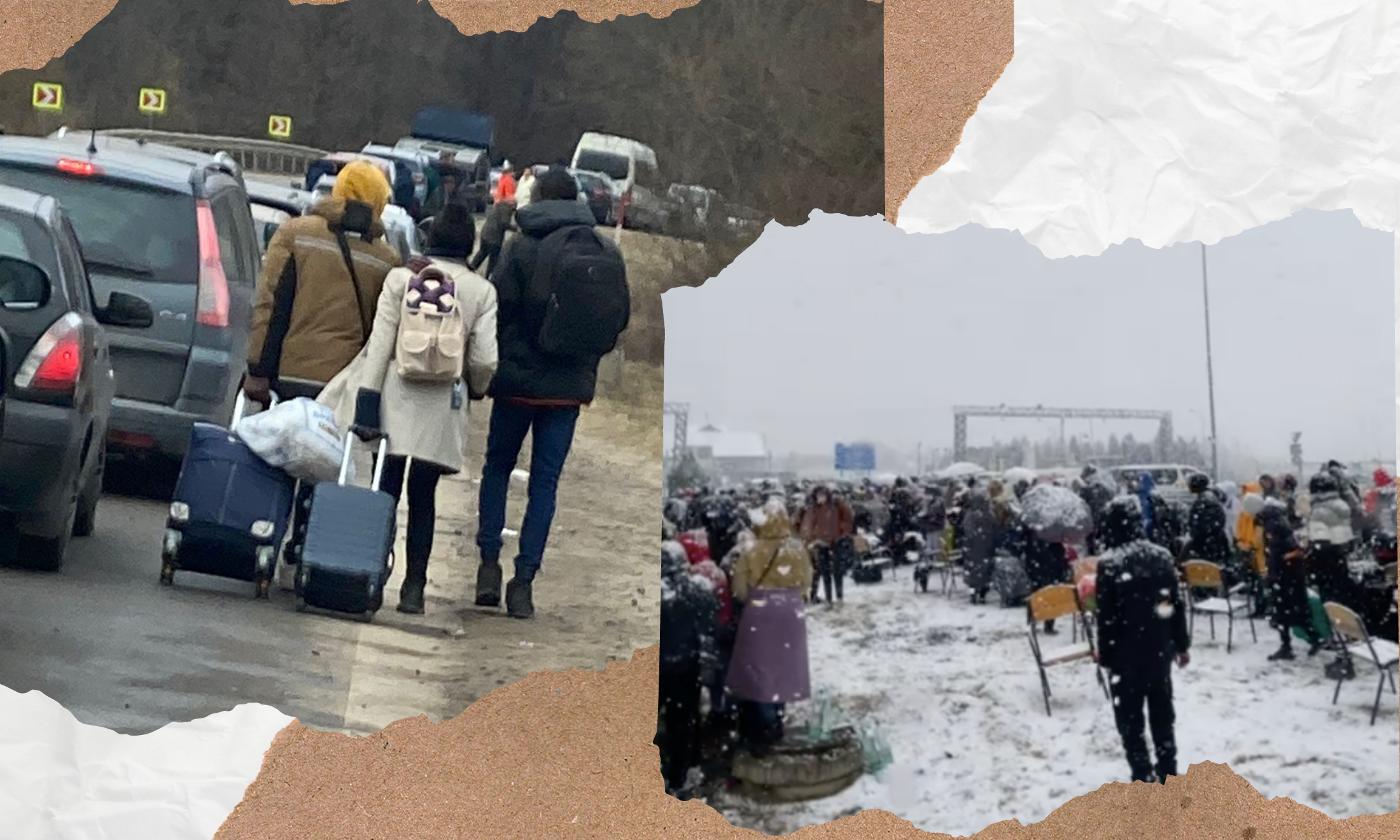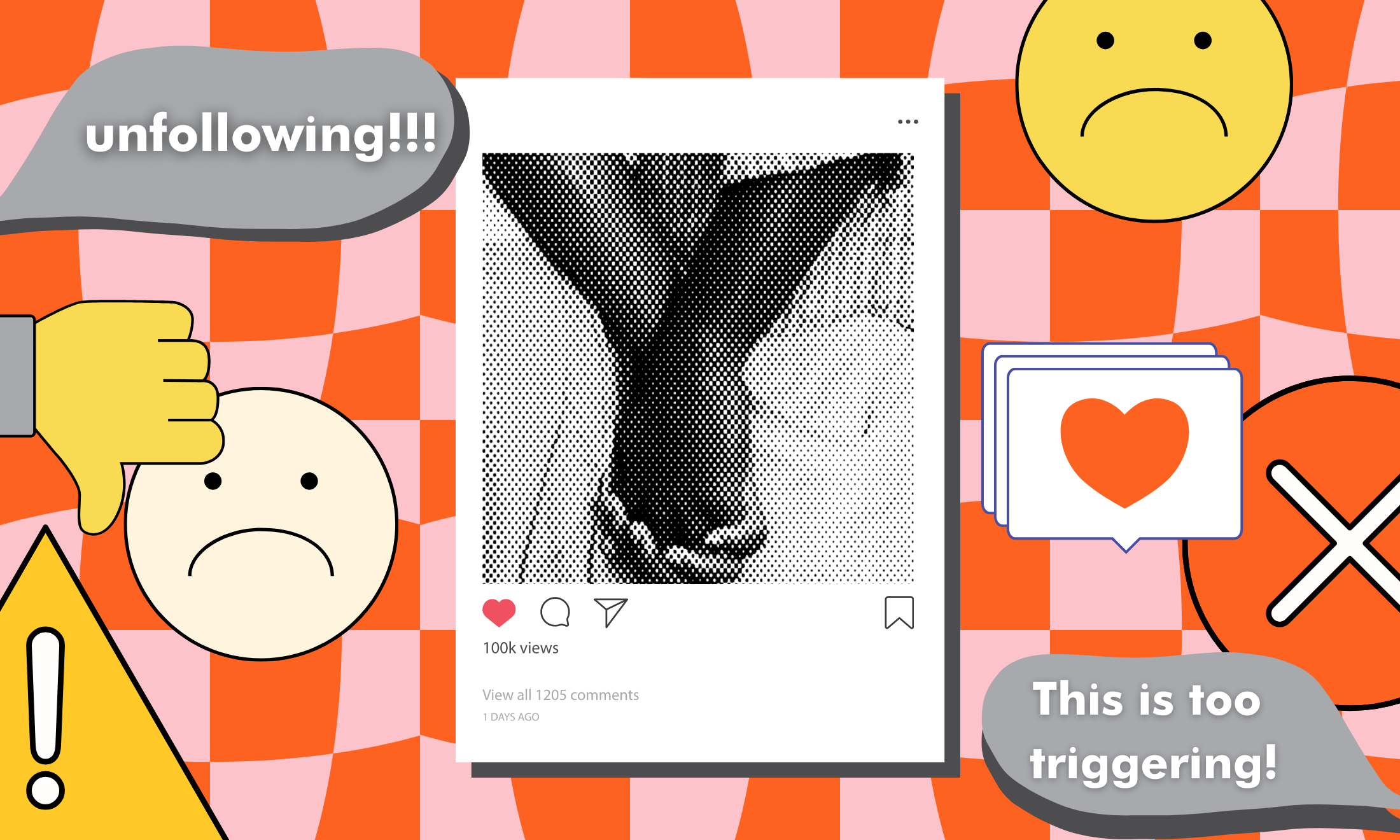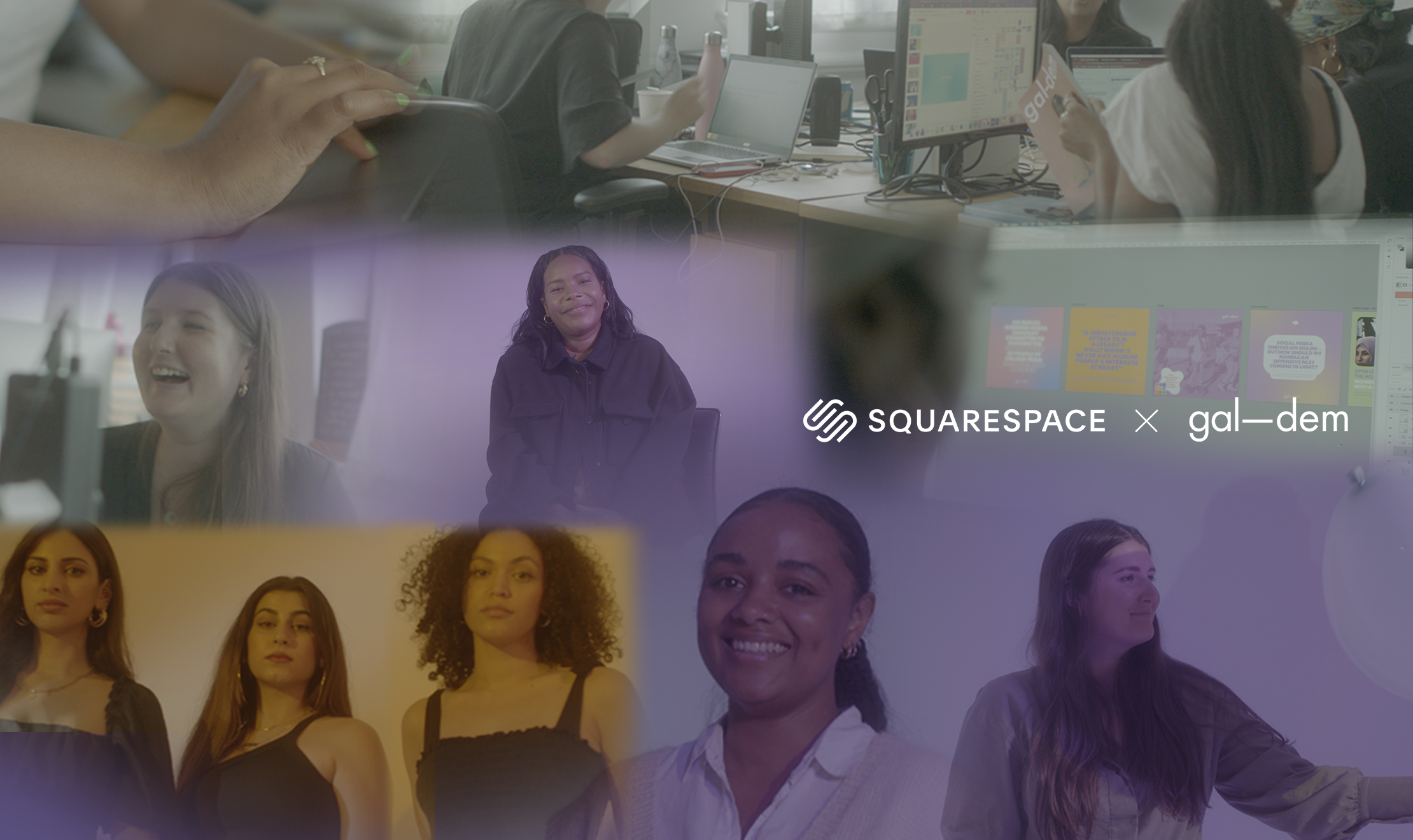
When I was first introduced to the term “anti-black”, a flicker of defence sprung up inside of me. “Who, me?” I thought. “Not me, no way”, I attempted to console myself, mentally listing all the reasons why I wasn’t anti-black. “Not all Asians are anti-black though”, I weakly thought, and then gasped out loud. In those moments, I saw why many people faced with similar accusations choose to sit in their comfortable space of ignorance, shedding themselves of responsibility. I mean, it’s easier and much lovelier to believe that you aren’t part of the problem, and you’re a well-meaning person that doesn’t contribute to racism and oppression, except…by default, you probably do.
You see, all my life, I was told that all PoC were in the same group. I thought we all had the same struggles. I thought that we were all denied the same spaces, and experienced racism, classism and every other prejudice the same way. Yet through reading articles, watching documentaries and speaking to many of my black friends, I saw that our histories were not similar. As white patriarchy so deftly masked over black oppression by homogenising us all, I was under false pretence.
So, as soon as those thoughts entered my mind, I took a moment to reflect. I couldn’t count the number of times I’d try to speak to my white friends about white privilege and after many attempts met with resistance, wanting to shake them for not understanding past their own personal feelings. Yet here I was, doing exactly the same thing. So I looked inward and checked everything about me and my culture that could and did identify as anti-black. I wasn’t surprised that I found a bunch of examples pretty quickly.
Growing up, having fairer skin – a notion passed down from the elders – was always the goal, and having black friends often resulted in friends and family gossiping about who I socialised with. I was mocked and considered dirty for hanging with black people. I was warned to protect my skin from getting “too dark”, and was subtly praised when my holiday tan faded. I didn’t explicitly pick up on it because it was no different from what was being promoted in the wider media, and although I do remember trying to disassociate myself with it, I accepted that this was just the way things were. Back then, I failed to see that my acceptance came at the cost of someone else’s denial.
Identifying, accepting and admitting my faults was the first step. You cannot live such liberation until you stop denying that there is a problem within your culture. For centuries up until today, black communities have long fought to rise against racism and the patriarchy – fights that benefit us all. Despite this, anti-blackness is rife and real in non-black person of colour (NBPoC) communities, and we have to tackle this to support our black brothers and sisters. From personal thought process and experience, I’ve put together a few pointers by way of introduction on how to tackle anti-blackness as an NBPoC.
Recognise your privilege
As a non-black person, you have privilege. Privilege is something you do not have control over – it is the category by which you are classified by the patriarchy, which promotes white, cis-heterosexual men at the top.
Privilege doesn’t necessarily mean you own a big house, earn a large salary or went to private school. Non-black privilege could mean that you are less likely to be racially profiled, or that you’re less likely to come from a low-income family, or more likely to have inheritance handed down to you as your family have a history of produce or service trade.
However, not all forms of privilege are financial ones. They could be religious, gender-based, academic or even social. Still, the overriding system that governs our world is based on skin colour. Enter racism. Racism is the number one power structure that makes it impossible for black people to exist with the same freedom, safety and access as the rest of society. I’m not talking about slurs and hate crimes that can happen on a one-to-one basis. Instead, consider racism on the scale broad enough to limit education, promote less chance of getting a mortgage or good credit score, fear of the police, cultural theft, and almost zero knowledge of origin or history. The list is endless – racism hides behind the façade of surface-level verbal and physical abuse. But at its most detrimental level, it is a power system that oppresses the black community more so than any other.
As a non-black person, I bet you can list ten actions of prejudice you avoid that black people do not. Financial and classist privilege is a product of colour privilege, which places fairer-skinned people at the very top, and black people, especially black women and femmes, at the bottom. As a non-black person, you have privilege that can be used to help those who have less of it. Start by acknowledging the privilege/place from which you stand, and take action from there.
It’s not about you
When we consider the larger picture and the aforementioned privilege classification, individual experience cannot outweigh the injustice that black communities experience on a much larger scale.
Tackling the oppressive system is more critical than personal experience, so take your experience out. In this particular context, if you’ve been racially abused or are financially unstable, this still doesn’t compare to systematic racism. The same goes when companies choose to actively employ black candidates. If you didn’t get a job because the employer hired a black person instead, consider this action as one step closer in fighting racism. This model of thinking can be used as a response for most “but [insert prejudice here] happened to me too!” cases.
Listen
When a black person tells you something affects them, listen. In fact, nine times out of 10, you don’t need to say anything in response unless there is an invitation for your opinion. There are far too many spaces that silence and mute black communities, and the space you foster should not restrict, but welcome.
If you are being checked by someone on anti-blackness, listen and digest first. Reflect on your actions, find the root, and make active change – this can be achieved through mental notes, searching the internet for material on your specific action, or talking it out with the person that checked you (after you’ve heard and taken their criticism on board, and if they’re willing to help you through the process).
Speak up
If you find yourself in a conversation, situation or instance where black people or culture are being attacked, speak up. If there is a black person in the room who can speak for themselves, let them. But if they need your backing and have let you know that they need it, be ready to support them. Silence never favours the oppressed, and always benefits the oppressor.
Pipe down
Assess conversations, events and panels – is your voice needed? Even in relaxed environments, is it more valuable to step back and allow space for a black person to speak or even exist in that space instead of you? Even if you have the best intentions, don’t take up space.
You didn’t really experience it, even if you were there
This was a big one for me. Growing up with many black friends, I felt as though I experienced the same prejudices they did. After all, as teenagers, we all got up to mischief together! However, on reflection, I realised that if I switched my vernacular to received pronunciation (RP) and stripped away all the things that we wore: Just Do it bag, gelled hair, cornrows, Kickers and sovereign rings, I would be able to blend in as a miscellaneous NBPoC from anywhere in the England. My black friends however, could not. I didn’t really experience the types of racism associated with being labelled “ghetto” for example because, in reality, my colour did not directly affect my financial or power status in the same way it did my black friends. Instead of experiencing with them, I was witnessing.
Recognise that we’re not the same
Acknowledging the difference between NBPoC and black is not divisive. Actually, the differences have always been there – we’ve just been told that they haven’t. Through understanding our differences and various levels of access, we are able to begin the building blocks of solidarity. This is not to enforce equality, but encourage equity. Equality works by giving everyone the same thing, although this is only effective if each person begins at the same starting point, which in real life, doesn’t exist. Equity, however, gives people opportunities according to their access and ability in an attempt to get them to the same starting point as the majority – only when equity is established can we consider equality.
The risk rule
One of the main, most regular, and most useless arguments that is presented to me on a daily basis is: “But [insert black friend’s name] is okay with [insert offensive action here]”, so what’s the problem? In response, I present a hypothetical situation.
You are in a room with Sandra, Afolake and Darren, who are all black. You say the N word. Sandra expresses that they are not comfortable with you saying the N word, yet Afolake and Darren are indifferent. Do you choose to continue to offend and cause discomfort for Sandra?
The answer is no. If there is a risk that you will provoke, trigger, harm, or promote discomfort even one person, why would you do it? Not when you’re singing songs, reading a quote or re-enacting a play. There are no allowances. As the N word is used so regularly in popular music, you may be taken aback at it’s ubiquity. Still, this is no excuse – train your mind to decolonise.
For those of you asking why? Why would you want to use the only word in the history of our world that carries the weight and promotion of oppression, racism, violence, colonialism, slavery, rape, abduction, mutilation and misogyny to this very day? Why?
Speak to your own community
If your friends, colleagues, family display anti-black sentiment, address it.
This could be done through mediated workshops, actively engaging in conversation, or by exchanging pieces of media. Sharing and learning about different cultures away from the white gaze is also a breath of fresh air.
Although it may be daunting to educate elders in the family or stubborn people that fail to see new perspective, checking people doesn’t have to be argumentative or stressful (although make sure you consider your safety if there is a risk of harm). Be tactful – if the person has exercised anti-blackness without realising, you’re less likely to get through to them if you publicly embarrass or belittle them. If said person is purposely promoting anti-blackness, that’s another story, and may require more a cut and dry approach or a complete disconnect from your circles. Regardless, do not stand for any form of anti-blackness, and people will learn to check themselves without your intervention. Be active with your activism.
Drop the “not all”
Not all Asians are anti-black. Not all white people are racist. Not all men are sexist. This argument is tired and futile, because we already know not all Asians are anti-black, not all white people are racist and not all men are sexist, but many are – so many that the structure we live in promotes anti-blackness and racism to a destructive scale. So quit justifying the minority, and starting speaking to the majority who contribute to anti-blackness. Once you realise the scope of racism and anti-blackness, you’ll see that they aren’t just actions or words, but horrific power systems that need to be broken.
Use your access
Research as much as you can – as well as learning about your own culture, study the history of our social constructs and black history. Exercise your thoughts and find your voice – it’s okay to make mistakes – just be willing and open to learn from them. Find a safe circle of friends who are willing to help you on this journey. There are tons of free resources online and in real life at archive museums, screenings and workshops.
As an English speaking, light-skinned non-black woman of colour, I can have easier access into many spaces, which in my case, is the arts and education. If you’re in a similar position, or find that you have influence or power of some kind, try and use your skills and access to break down walls for your black brothers and sisters. Create roles in productions, buy from black businesses, put forward job candidates, volunteer in youth clubs and schools, connect aspiring professionals with your colleagues, generate platforms where black voices need to be heard, and genuinely care about using your access for change. You may feel as though you have little power at first, but trust me, you have more than you’re told.

Britain’s policing was built on racism. Abolition is unavoidable

Against the binary: imagining a future of holding my chest high

How Pakistan’s Khwaja Sira and transgender communities are fearing and fighting for their futures






